
Explore the top rated San Antonio drug rehabs with confidence. We've analyzed each of the 82 addiction treatment centers in San Antonio, TX for patient reviews, clinical credentials, transparency, and brand reputation to identify the best rehab programs.
Filter by inpatient, outpatient, detox, health insurance, specialty program and more to quickly find the best drug and alcohol rehab in San Antonio.Our Methodology
Rehab Score
Our Rehab Score is designed to make it easier for you to find the best treatment centers. We combine overall ratings with recent feedback to create a score that reflects a center's quality right now.
.

| Name / Address / Rating | Description | Treatments / Programs / Payment Options | Review / Contact | Images |
|---|---|---|---|---|
1
Top 10 Rehab in San Antonio
Rehab Score
Our Rehab Score is designed to make it easier for you to find the best treatment centers. We combine overall ratings with recent feedback to create a score that reflects a center's quality right now.
7.81 / 10 | SACADA San Antonio Council On Alcohol and Drug Abuse is a substance use prevention and recovery support organization in San Antonio, Texas serving individuals and families across Bexar County and 28 surrounding counties. Founded in 1957, this nonprofit provides intervention services, recovery coaching, drug and alcohol assessments and youth prevent | Treatments Programs Payment Options | If you need help with an addiction-- this is the best place to go for it
Katie Oliver
1 year ago
Stop in here if you need help with Recovery Support Services. Make sure to ask for Leroy Garcia
C W
1 year ago
Community- equality - caring
Julie Lloyd-Atkinson
2 years ago
| 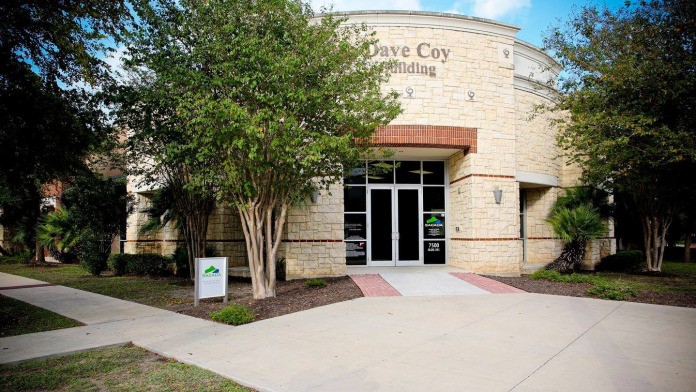
3 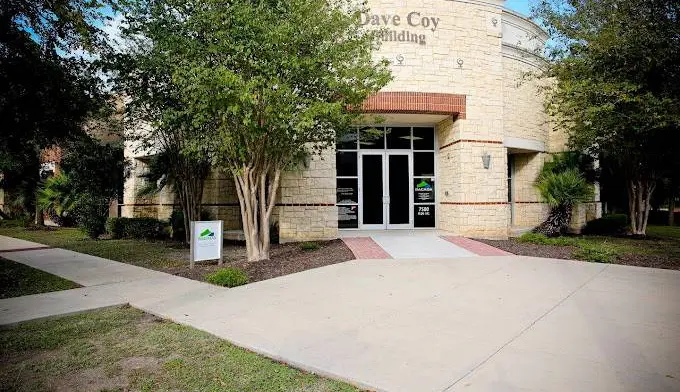
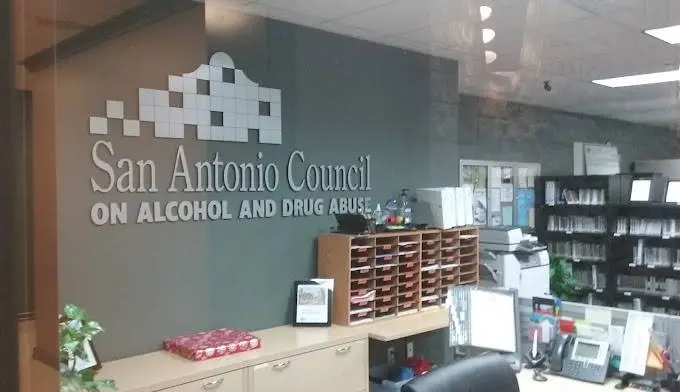
|
2
Top 10 Rehab in San Antonio
Rehab Score
Our Rehab Score is designed to make it easier for you to find the best treatment centers. We combine overall ratings with recent feedback to create a score that reflects a center's quality right now.
7.81 / 10 | San Antonio Recovery Center (SARC) in Culebra is a Joint Commission accredited alcohol and drug rehab in San Antonio, Texas. Adult clients can receive detox and residential treatment services at this location. SARC utilizes a wide number of evidence-based treatment methods to deliver highly customized treatment plans. It’s not uncommon for | Treatments Programs Payment Options | SARC saved my life. Amazing counselors and staff!!
Eric Ebel
7 months ago
This program helped me to start the healing process after a 20 year alcohol addiction. Because of the amazing staff I have been able to start to turn my life around. I am forever grateful to SARC.
Jeanette Hunt
1 year ago
SARC saved my life. My life had become unmanageable and was spiraling out of control. I was still working my full time successful career, but it was only a matter of time before I could have lost everything I’ve spent my life building. Tired of waking up with a black box of wine on my nightstand I threw lord knows what into my suitcase and checked into Cagnon for 38 days. For a girl accustomed to being in complete control I was petrified. I was a mess. The staff was so welcoming and walked me through the process. Was I ready to take 12 weeks off of work? It was life or death and I chose life. The detox process was tough. Reba and Alan made me as comfortable as I could be. I had sweats and nightmares. Roy, a lead counselor calmed me down. My job for 5 days was sleep, hydrate and rest. Gen the program Director Is fabulous. She kept assuring me trust in the process. Allow myself time to heal, grieve and let someone take care of me for once. The days are very structured with wellness, nutrition, groups, education, counseling. Nutrition and routine and self discipline are key. We have one job while in treatment. Show up!! It’s impossible not to learn, grow and learn valuable tools and coping skills to set you up for a lifetime of sobriety. All counselors know your name and your case. They are always available to lend an ear and advice. The center is staffed with people in long term recovery. Richard, Steven, Blake, Jess, Mandy Jo all have real life experience , Every night there is an AA meeting and fellow patients can meet in groups to do book study, talk and truly become a recovery family. This is a private facility that works with many insurance companies and helps people who need to make arrangements for private pay. The setting is serene and a wonderful place to heal. Gen, Roy and Paula are true experts in their field. Each with their own individual techniques and special touches to group sessions. I am for ever indebted to the techs, counselors and Karen and Raul Ruelas for their relentless passion in fighting for those struggling with substance abuse disorder to live a long happy life free of drugs and alcohol. World class facility. Amazing caring people who pour their heart and sole into what they do. Highly recommend if your looking for a program that treats the total individual and follows up on you for life. Love you all for all you did for me. XoXo D.
Run don’t walk!! Jackie should be stripped of her license. She used her position to look up my information and called me at 6:50am in California. This woman has ZERO business running a recovery facility. She heckled me and was relentless on the phone. I filed a grievance with State and against her. So sad she’s in charge. Place went downhill after Karen and Raul sold. Tragic. Go to New Day or SOBA. She’s a disgrace to the recovery community!! Do not go there.
Dara Donnelly
1 year ago
| 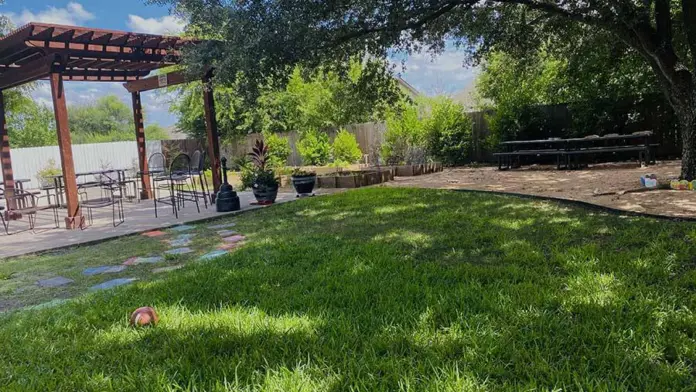
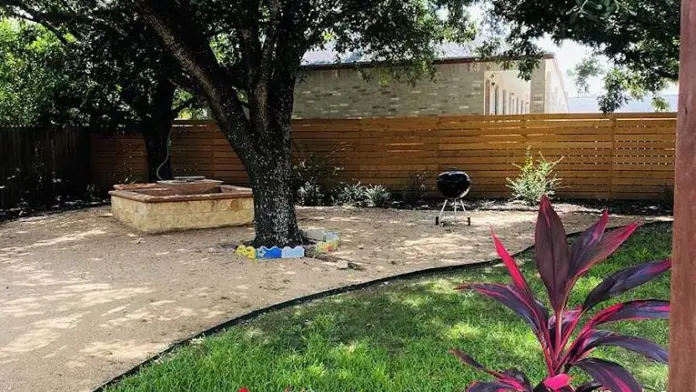
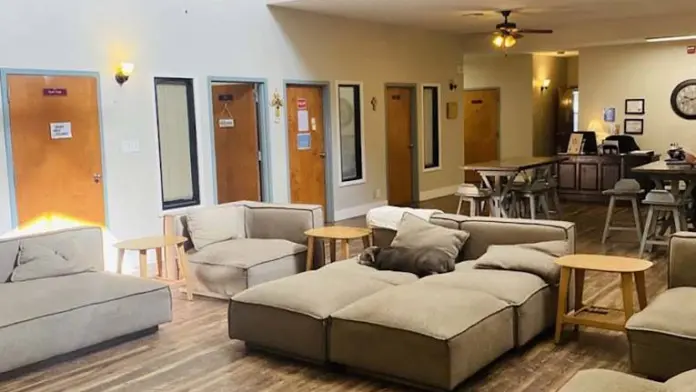
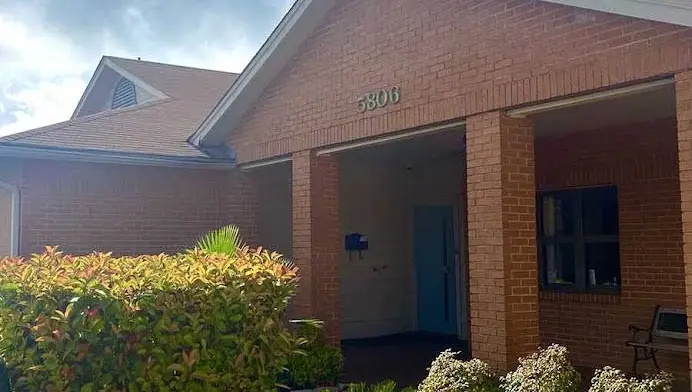
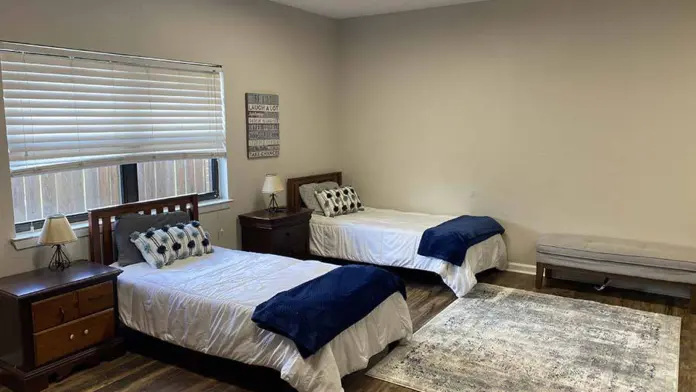
|
3
Top 10 Rehab in San Antonio
Rehab Score
Our Rehab Score is designed to make it easier for you to find the best treatment centers. We combine overall ratings with recent feedback to create a score that reflects a center's quality right now.
7.65 / 10 | La Hacienda Treatment Center’s Community Outreach Center is located in San Antonio, Texas. This is an outpatient facility that serves adults who are navigating recovery from drug or alcohol use disorders. They accept policies for most major insurance providers. This community outreach center serves as a supportive meeting place where alumni of t | Treatments Programs Payment Options | If you or your loved one needs tough love, education, and support this place is for you. I know this journey is so incredibly hard and scary but there is help out here when you are ready. I really appreciate the guidance and understanding they taught me to help others. I agree rehab is expensive without insurance but this place changes and saves lives when you are ready.
Stephanie Ann Morgan
1 year ago
Would recommend to any client
Jon McKenzie
2 years ago
I got sober here and wouldn’t hesitate to recommend LaHa to someone I love!
Ellie Jesse
2 years ago
| 
2 
|
4
Top 10 Rehab in San Antonio
Rehab Score
Our Rehab Score is designed to make it easier for you to find the best treatment centers. We combine overall ratings with recent feedback to create a score that reflects a center's quality right now.
7.62 / 10 | Continuum Outpatient Center in San Antonio, Texas, offers treatment for substance use and co-occurring mental health disorders. The continuum of care offered includes outpatient programs, inpatient programs and aftercare. Outpatient Substance Use Programs Partial hospitalization programs (PHP) offer intensive outpatient care that can include psycho | Treatments Programs Payment Options | The compassion the team at Continuum shows to each and every client is extraordinary. Continuum is truly saving lives one client at a time!
randee lynne
7 months ago
Continuum Outpatient truly supported me in my early recovery.
The continued care I received was absolutely vital to my experience.
Continuum played a major role in helping me get to where I am today, and now, I get the incredible opportunity to help others just like me.
I’m so grateful.
KayCee Chesney
7 months ago
I can’t say enough good things about Continuum Outpatient Center. From detox all the way through residential treatment, PHP, and IOP, they make sure every person is treated with kindness and respect. They truly meet people where they’re at, and it shows in the care they provide. San Antonio is lucky to have such a dedicated and supportive team!
Brent Harper
9 months ago
| 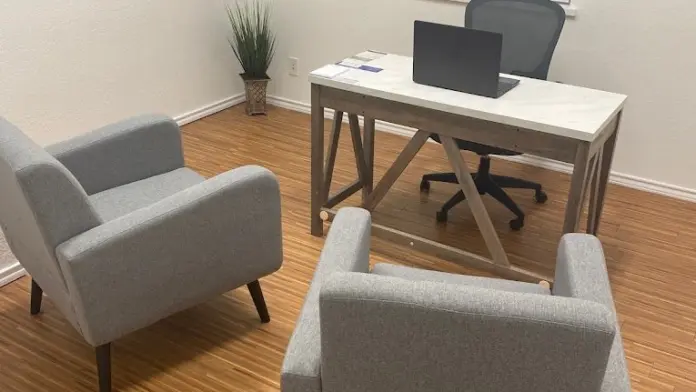
2 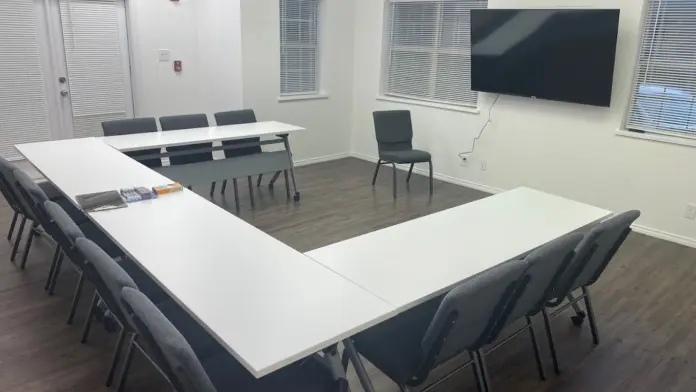
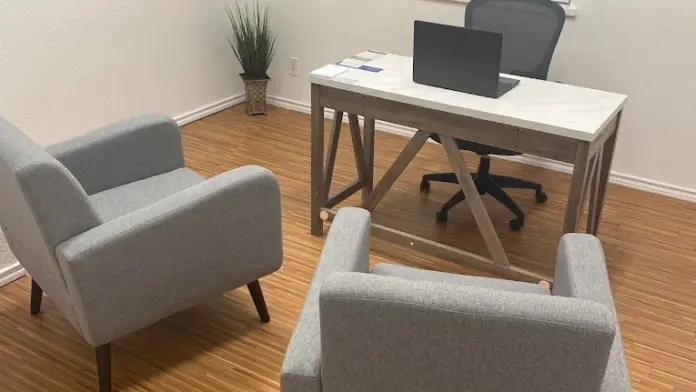
|
5
Top 10 Rehab in San Antonio
Rehab Score
Our Rehab Score is designed to make it easier for you to find the best treatment centers. We combine overall ratings with recent feedback to create a score that reflects a center's quality right now.
7.57 / 10 | Located in San Antonio, Texas, Shavano Park VA Clinic is a drug and alcohol addiction clinic that serves veterans who are struggling with addiction. They also treat co-occurring mental health disorders, which can include depression, anxiety, bipolar disorder, PTSD and schizophrenia. Addiction and mental health can often go hand-in-hand, and with th | Treatments Programs Payment Options | I am a patient here and I love it! It’s still a hidden gem! Hardly any wait time and everyone is helpful and informative.
belinda acconcia
7 months ago
Bridget at the front desk is the nicest lady. Very helpful and inviting. I hope she has a blessed day
Connor M
1 year ago
For free health care, I don’t know why I complain. Probably because I'm a salty lil Karen who can barely get out of bed and when I do; I'm mad 😂 I've been to several VAs and Shavano typically completes everything I ask for help with, even if it takes forever. And I really like Dr K.
Overall with VA healthcare, or pretty much anything nowdays; being direct and asking for what you need WITH UNLIMITED PATIENCE gets the best results.
***ORIGINAL POST***
I've been seeing my Shavano Park team since October, and I like the location and staff. Dr K is great. Today there was some hub-bub with the fire department and I was forgotten about in the waiting room and ended up having to be there a few extra hours😂 The pros to this was the waiting room was comfortable, the staff was funny and I got to get halfway through my new library book. The only suggestion I would make would be maybe some feng shui (zen water fountain and tranquil pictures perhaps?) and coffee station/healthy snacks for the waiting room.
“Where there’s a smile, luck arrives.”
Katie Rae
1 year ago
| 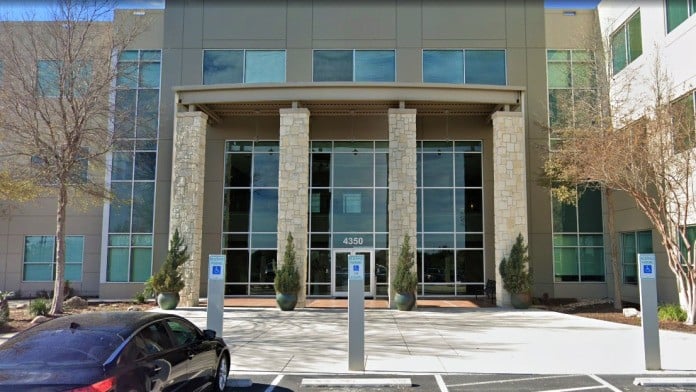
2 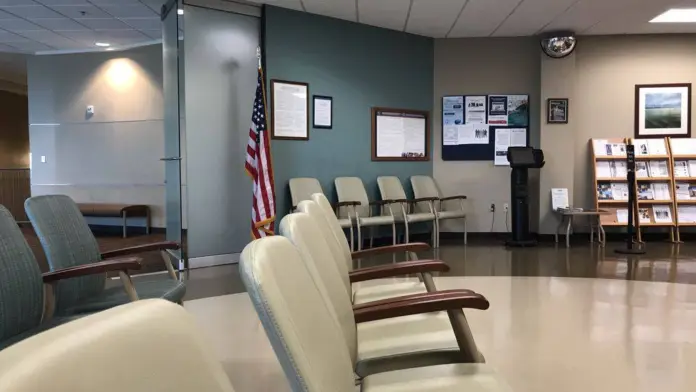
|
6
Top 10 Rehab in San Antonio
Rehab Score
Our Rehab Score is designed to make it easier for you to find the best treatment centers. We combine overall ratings with recent feedback to create a score that reflects a center's quality right now.
7.55 / 10 | San Antonio Behavioral Healthcare Hospital is a mental healthcare facility for children, adolescents and adults in San Antonio, Texas. They offer age specific inpatient and outpatient treatments, including special programs for veterans and active duty military. They also have a dedicated substance abuse program for adults struggling with chemical d | Treatments Programs Payment Options | I was inpatient here for 4 days, adult unit. Best staff ever. Truly made me feel welcome and wanted while I was there and they really brightened up the mood for everyone as much as they could. Give miss terry/terri and miss Candice a raise ! I couldn’t have gotten better help for the situation I was in, they were the best. 💕
Sunshine Davies
2 months ago
Mrs Abigail Carabollo excelente persona amable y me ayudó mucho
Otila Maria Elena Gonzalez Zamora
2 months ago
Muchas gracias por proveernos del pavo, vegetales y lo necesario para tener nuestra cena de Acción de Gracias. Valoro mucho su dedicación para apoyar a la comunidad de San Antonio Tx!
MARIA ORTIZ
2 months ago
| 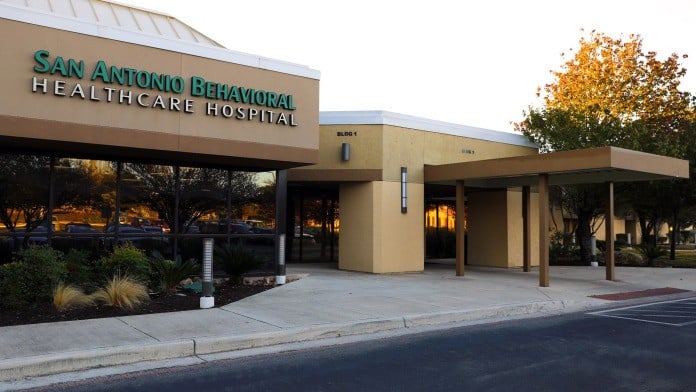
3 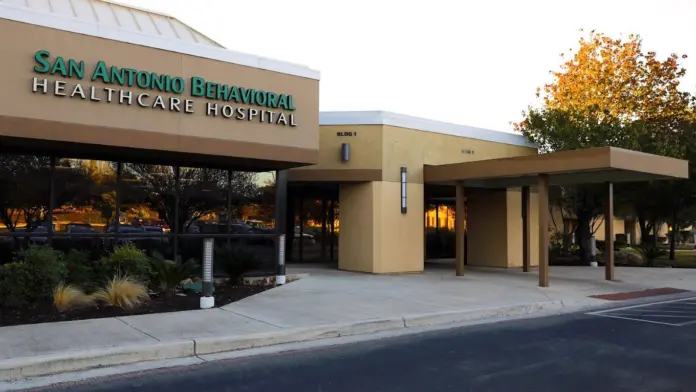
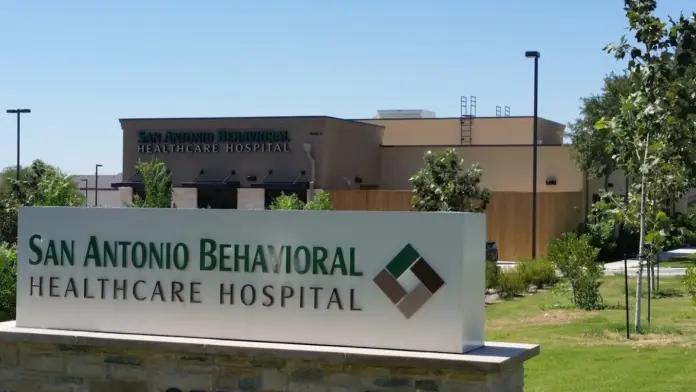
|
San Antonio, TX | Medmark Treatment Centers San Antonio Military in San Antonio, Texas, is a substance use treatment center specifically for opiate addiction. You’ll also get counseling to figure out what led to opioid abuse, which could include a dual diagnosis such as depression, anxiety or PTSD. The center is state licensed and CARF accredited. They accept many | Treatments Programs Payment Options | It’s a good clinic respectfully staff are on point and cool
Raul Guadalupe Casarez
2 months ago
I'm so grateful I would not go to any other place
Leroy Arocha
2 months ago
I’m getting help for the first time and so far so good the people there do care they talk to you not just doze you and kick you out. They always ask if you’re okay they talk to you and try to help you any kind of way. Just wanted to say Thankyou to the people in treatment center for the help.
Rowdy Garza
3 months ago
| 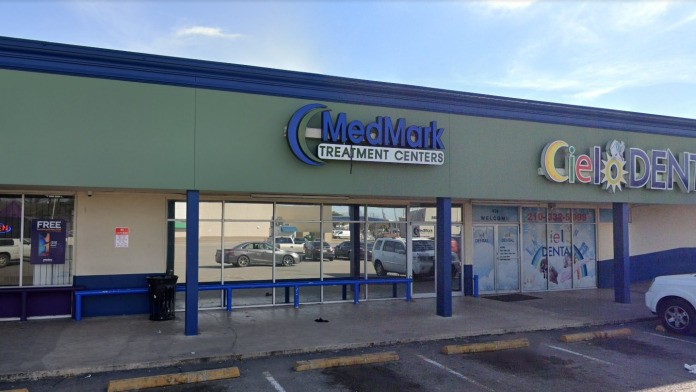
2 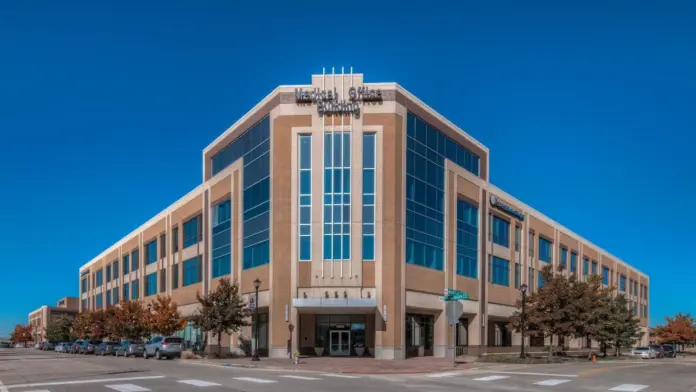
|
San Antonio, TX | Positive Recovery Centers – Addiction Treatment in San Antonio, located in San Antonio, Texas is a private alcohol and drug rehab that offers treatment for a variety of substance abuse addictions. They offer residential care providing long term support for addiction recovery, as well as flexible outpatient addiction therapy allowing patients to l | Treatments Programs Payment Options | I first went to the in patient 30 day facility in Spicewood TX and that place was phenomenal!! They give you everything you need to be successful once out in the real world. I am now in Steve’s IOP class and actually look forward to every meeting. There is so much to learn and he has the knowledge to teach it for sure. The program itself is amazing and focuses on what you gain and not what you lose!
TC
3 years ago
This was an amazing experience. The staff is incredibly welcoming and understanding. The counselor (Steve) is one of the most knowledgeable and sincere people I've ever had the privilege to meet and learn from. He welcomes all who are willing to put in the work to improve their lives and help others do the same. This is a safe and judgment-free environment that will not only help you and your loved ones understand the daily struggles of addiction, but will also teach you to understand and appreciate those around you in your day-to-day life. I recommend this class to anyone who is looking for help.
Richard Clower
3 years ago
Steve and his staff are truly amazing! The material and tools that are given throughout the program were beyond helpful. Everyone there is genuinely concerned about you and your recovery… I highly recommend this program.
Amber Dawn Breunig
3 years ago
| |
San Antonio, TX | The Center for Health Care Services comprehensive substance use disorder (SUD) treatment for adults through their Restoration Center in San Antonio, Texas. Their programs include residential detox, adult outpatient and intensive outpatient care and medication assisted treatment (MAT). They offer court ordered services and specialized programs for p | Treatments Programs Payment Options | This place is Great
drew good
5 months ago
How do they charge and do ya know a program that will help pay some of your medicine.
Rosalinda Reyes
1 year ago
I was able to get off by taking showers 7 a day and using the jacuzzi at golds gym. Yes sometimes you stay up at night but just take another shower Also drinking water and milk help to and reading the Bible. Also tell on the dealers that got you hook to the crime stoppers in San Antonio. Just goto there website and you can also leave a message
Abel Canales Jr
2 years ago
| 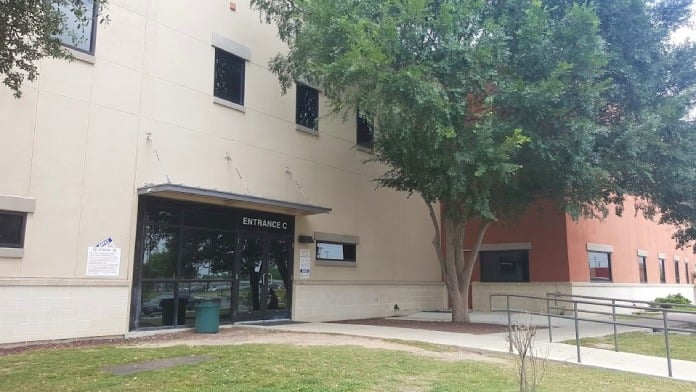
|
San Antonio, TX | If you live in San Antonio, Texas you can find addiction recovery services at SOBA Texas. The services available include detox, residential inpatient care, and outpatient care. The staff combines traditional and modern therapies to create a treatment plan that best supports your needs. A Comprehensive Evaluation To Plan Your Treatment In the inpati | Treatments Programs Payment Options | Soba is home to me. I love the staff because they genuinely care. They believe in us and it shows everyday.Each and every tech holds a special place in my recovery because when I saw nothing in myself they saw everything I could be. Thank you Soba, your the best.
Shell Reyes
5 months ago
Waking up to deers running around on the grounds is just breathtaking, and the perfect way to start the day. There are also adorable goats (yes goats), plus horses who love to accept carrots that you can get from the kitchen. Tennis courts, basket ball hoops, swimming pools, Jacuzzis and lots of long walks close by. The staff are caring and always ready to help, the chef is wonderful, providing delicious fresh food every day, they even have their own veggie and herb garden. Soba Texas is a beautiful, serene place, providing the perfect environment for self reflection and the process of healing from life's challenges. Plus they allow you to bring your pet if you wish, which is refreshing and so nice. Group meetings and sessions are empowering and educational, Soba Texas provides a healing break away from the world and a chance to regroup, learn, grow, and then return to the world refreshed, invigorated and ready to fall in love with life again. Yup, clearly I recommend this lovely place.
Susie Wiggins
2 years ago
First and foremost I want to say I would give SOBA a million stars if I could. Many leave false reviews and I witnessed this multiple times.
Addicts know how to manipulate and are the best of the best at doing so.
SOBA has rules in place for 100% success and 100% safety for all in treatment.
If you violated the rules you must be terminated to keep it a safe environment for all of us that want to heal.
If a client is discharged at the fault of their own actions the first thing I heard multiple times is I am going to leave a bad review.
Thank you SOBA for taking a false bad review and keeping this a safe place to recover.
Sadly to say we are a family of 8 (YES 8) that reside in Michigan and have recovered out of state only because of SOBA.
We all have years of sobriety due to the highest standards SOBA has set to teach you a beautiful new way instead of using mind altering substances.
I was petrified at age 45 to enter a treatment center and I had an extremely bad attitude when I arrived!
I was determined to find something wrong with SOBA so I could have a reason to leave.
SOBA is different than the other treatment centers we tried multiple times in Michigan. We all failed on numerous attempts.
SOBA is loving, kind, knowledgeable, safe and a peaceful place to recover.
SOBA far exceed my expectations and I stayed in treatment for 16 months.
Our children (3) stayed in treatment for 2 years. My sister and nephews also recovered at SOBA with a lengthy stay in sober living.
It is so important to reside in sober living after inpatient and do the work. Leaving treatment early will end in failure.
If it were not for SOBA I can honestly say several of us would not be alive today.
Gina Jurries
2 years ago
| 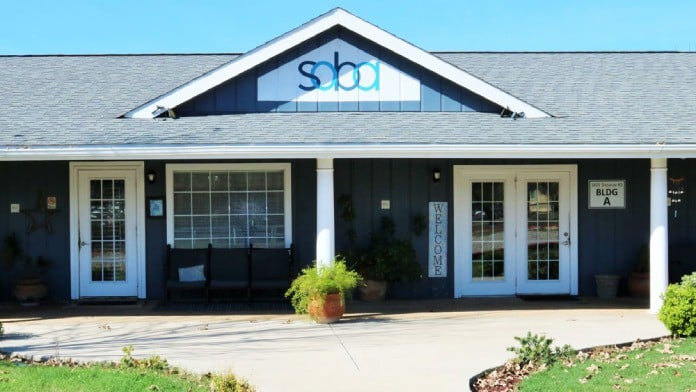
6 6 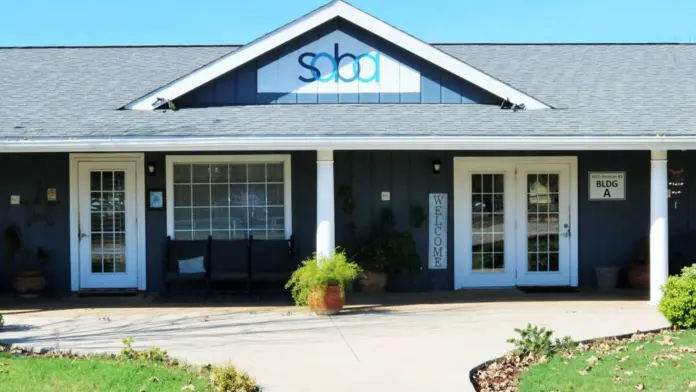

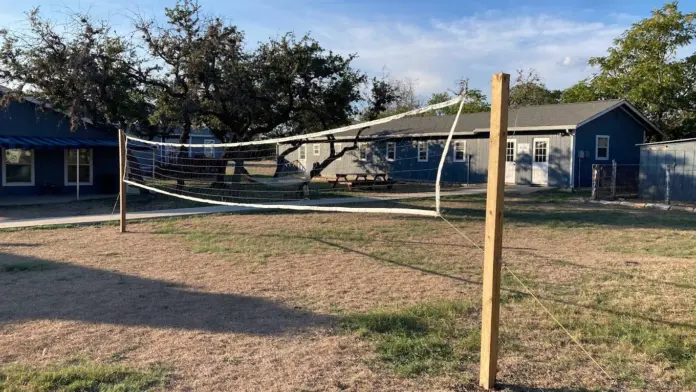

|
San Antonio, TX | The Audie L. Murphy VA Medical Center Veterans Hospital is located in San Antonio, Texas. Operating under the South Texas Veterans Healthcare System, this hospital supports veterans and their families providing them access to top quality services including treatment for mental health or substance abuse disorders. This hospital offers both inpatient | Treatments Programs Payment Options | Took a friend to an appointment for. Friendly staff, beautiful looking campus. Glad they are taking care of our veterans.
J L
2 months ago
My dad walked out and may be a menace, but I’ve never seen a hospital be so on point with their diagnosis & how logical they were. You don’t see this with regular hospitals. I wish I had benefits like this, but never will. Thank you RN Venny, Dr. Z & the cardiologist from University for your patience today.
Bekah Gonzales
3 months ago
Excellent care and service
Pamela Carian
3 months ago
| 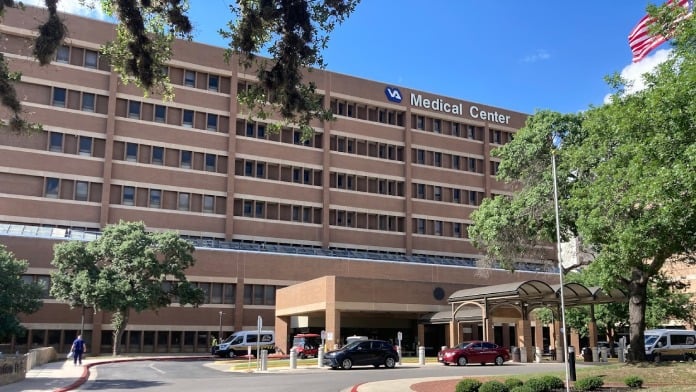
3 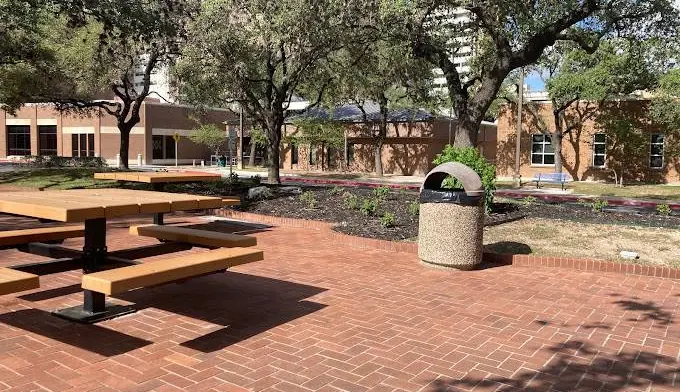
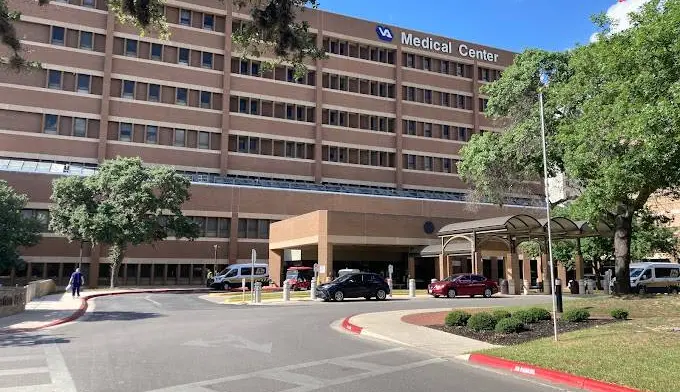
|
San Antonio, TX | Rise Recovery’s Charlie Naylor Campus is located in San Antonio, Texas. It’s an addiction and mental health treatment facility that has helped young adults and families overcome drug and alcohol addictions for more than 40 years. Young adults seeking recovery from substance use disorders can take advantage of the clinic’s Youth Recovery | Treatments Programs Payment Options | Great staff,great detail of care,rooms were very comfortable and clean. A new way of care.
Ricardo Davila
4 months ago
My daughter attended Rise Inspire Academy for 2½ years and graduated in 2025. We were referred to the program by a close friend who works in the recovery community, and I'm truly grateful for that connection. Rise made a meaningful impact in my daughter’s life. She began her journey to recovery in 2023, and today, she’s the only clean and sober student in her graduating class. That speaks volumes about her commitment — and the support she received.
Throughout her time there, my daughter was offered counseling, coaching, and a safe place to heal and grow. The program isn’t magic, and it’s not easy. But for students who are ready to put in the work, it can work. The staff includes some very kind, devoted individuals who truly care about the kids they serve. For that, I’m thankful.
However, my experience as a parent was mixed. I found communication with the staff to be somewhat lacking. It often felt like they were focused entirely on my child — which is important — but I also felt left out of the loop and that my feedback was not always welcomed or acknowledged. That made things challenging at times.
One concern I want to raise is how my daughter was led to believe she had a chance to work at the school after graduation. She went through the process of creating a recovery plan, submitting a resume, and even had an interview with the director, Evita. But in the end, nothing came of it, with no clear explanation. I can’t help but feel this decision may have been influenced by my own willingness to speak up about certain safety concerns and the need for stronger leadership. That was disappointing, especially after the growth and hard work my daughter had shown.
Despite the challenges, I do strongly recommend Rise Inspire Academy to families with teens struggling with substance abuse. This school offers a life-changing opportunity for young people — but it requires effort, honesty, and a desire to change. For those who are ready, this program can be the turning point.
M R
7 months ago
Group sessions and a safe place for your kid to hang out. Helped my family a lot!
David Brown
2 years ago
| |
San Antonio, TX | Balcones Heights VA Clinic is an outpatient facility in San Antonio, Texas. They provide primary care and specialty health services such as mental health care, telehealth and social support. Their mental health care helps veterans overcome common psychiatric conditions including depression, anxiety and PTSD. It also includes programming for veteran | Treatments Programs Payment Options | Gotta have your ducks in the roll such as paperwork snd such because under the current guidances from the VA, not getting too much of a walkin outside of using the ER and community care as for primary care. Note MRIs are only available for out patient Monday thru Friday 0800 to 1700 at Audie or Northwest Clinic.
Robert Rupar
6 months ago
Easy to find. Lots of eating and shopping choices
Matthew Thunder
10 months ago
Hey I need to updarev
Adrian Lee Gutierrez (Adrian Gutierrez)
1 year ago
| 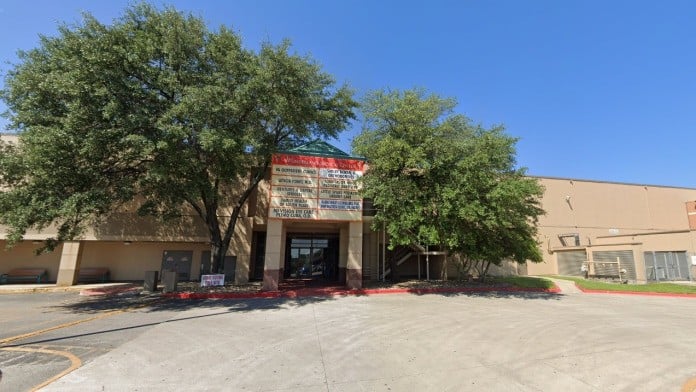
2 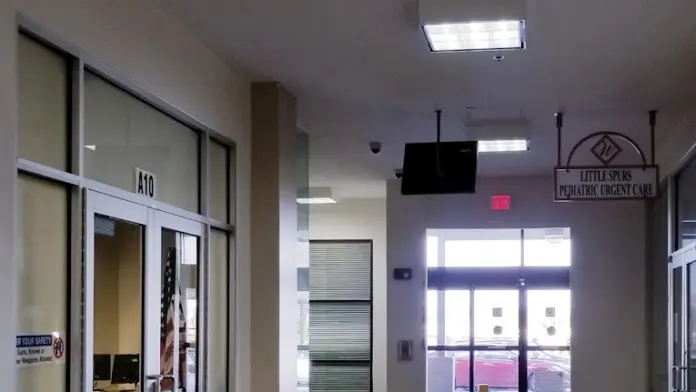
|
San Antonio, TX | If you’re a veteran seeking addiction treatment in the San Antonio, Texas, area, you can get support at North Central Federal VA Clinic. They treat any veteran who is struggling to overcome drug or alcohol addiction. Plus, they’re a dual diagnosis center, which means that they treat mental health conditions too, such as depression, anxiety, PTS | Treatments Programs Payment Options | Awesome clinic and excellent staff!!!
Kat Mal
3 months ago
My first time in this facility. Very well organized in the Lab blood draw area. The number system is very effective. The pace was fast. I was number 30th in line. The staff took 25 minutes to get me in the chair. The staff is very knowledgeable and attentive to the patient. Thanks for all you are doing for the veterans.
7 paul
6 months ago
Outstanding experience, wonderful staff, careful and caring care, and very efficient and well-run! I have been so impressed and really couldn't ask for better medical care. Kudos! (-:
Richard Knight
6 months ago
| 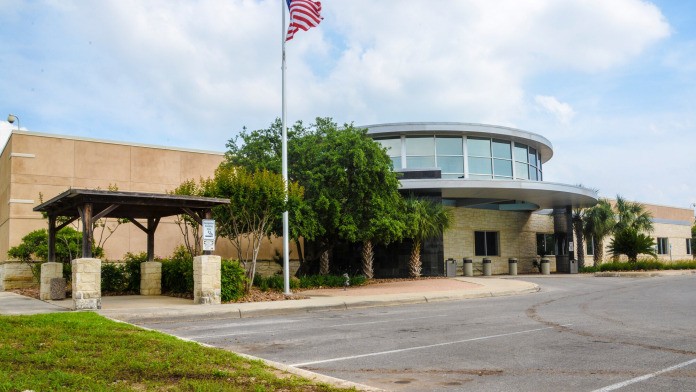
2 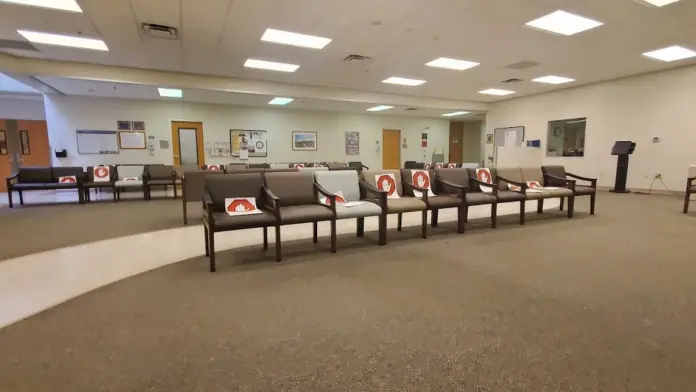
|
San Antonio, TX | New Choices Treatment Center in San Antonio, Texas, is a veteran owned addiction treatment center that also provides supportive care if you have a co-occurring mental health disorder. They have a continuum of services here including detox and medically supervised detox. They offer both outpatient and inpatient care at this location. They work with | Treatments Programs Payment Options | Great counselors and stellar groups that really round out a good program for recovery. Enjoyed the focus on physical well being, as well as mental.
jody nixon
2 months ago
The Counselors and case management were awesome :) Parker was very helpful and resourceful! and the chefs food was really good. Classes were also good But I would not wanna come back !
Gabrielle Renee
2 months ago
Great treatment center with great classes and staff. Provide quality care, food, and medical care. They have a mind, body, spirt approach to care, and also included 3 days a week physical training in a private gym. Overall a great place to go to start your recovery.
Stacy Jouffray
3 months ago
| 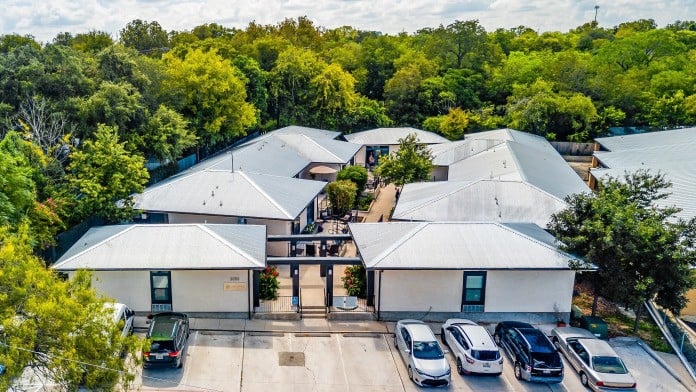
6 6 



|
San Antonio, TX | The New Season Treatment Centers of San Antonio provides adults with outpatient addiction treatment in San Antonio, Texas. An array of insurance plans are accepted. Medicaid, Medicare and TriWest are among them. What stood out to me is that they are open seven days a week for dosing including holidays. The team providing you with comprehensive care | Treatments Programs Payment Options | This treatment facility actually have people working there that care. The staff will go above and beyond to get u the help u need or the resources u need. Reagan is a counselor and she’s new but learning FAST. I’m glad I got her as my counselor bc if I need something she does her best to find the resources I need. The wait times can be long and frustrating but it’s not their fault they go as fast as they can to get through the line quickly. I catch 4 buses to come to this clinic. I leave my house at 6am and don’t get home sometimes till 11pm. Bc of the bus service it’s crazy but I like it here.
Alisha Pacheo
3 months ago
I recommend it to any one that needs help with opiods
Esmer Arevalo
4 months ago
It's a great clinic, Staff cares and they really do help on trying to keep you on a sober journey, they guided me on the right path on getting insurance and this also helps me on paying for my bill, cause paying cash everyday does hurt your pockets, they didn't have to but they did.this clinic has improved alot, alot different from 15 years ago. Everyone that works at this clinic will help you if you really want the help, shout out to nurses and staff!!👍
Ernie Ovalle
5 months ago
| 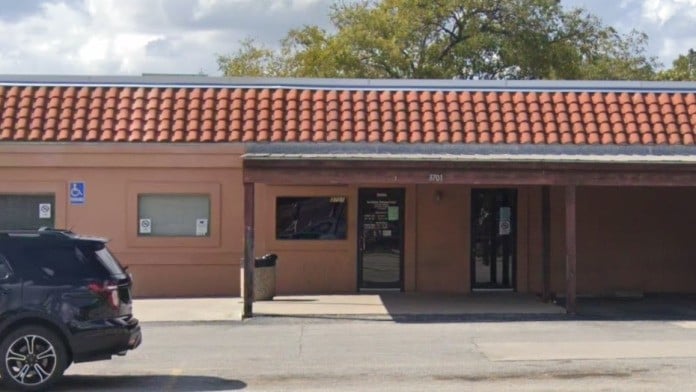
5 5 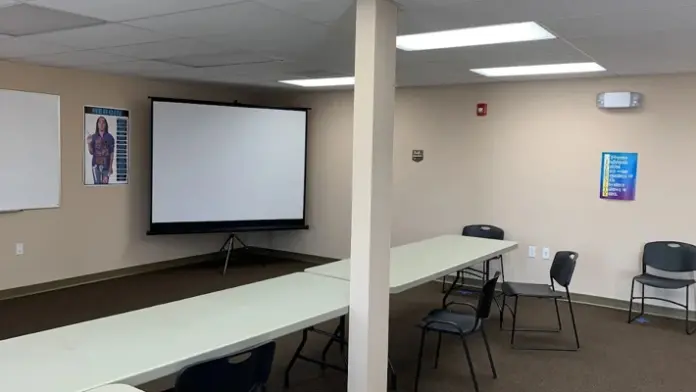
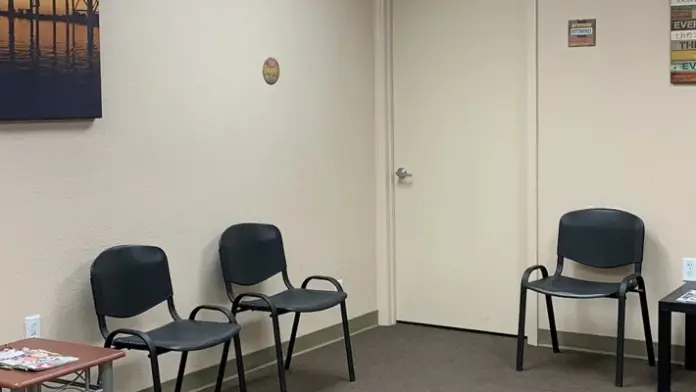
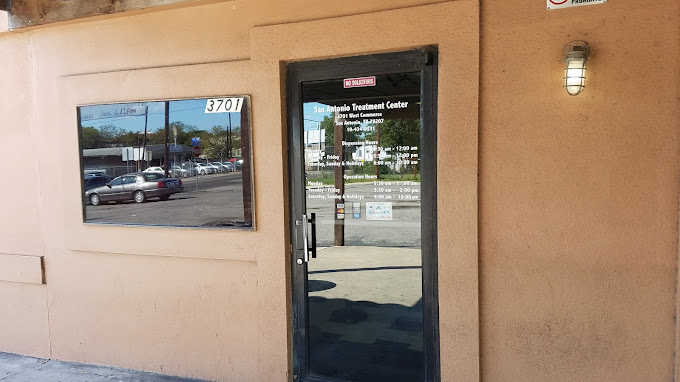
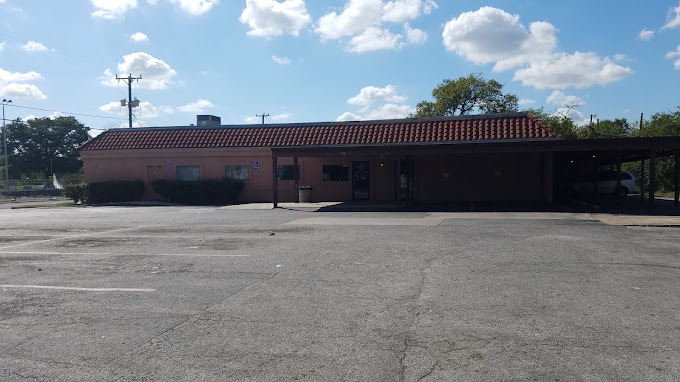
|
San Antonio, TX | Located in San Antonio, Texas, Volunteers of America provides residential, partial hospitalization, and outpatient social service programs, mental health treatment, dual diagnosis treatment, alcohol and drug rehab services, and housing services. They also offer support to individuals who live with intellectual disabilities. The residential progr | Treatments Programs Payment Options | This place saved my life. I was there back in 2014. I will be 9 years clean in July. They were very strict which was exactly what I needed. Thank You VOA!
Jeri Gilbreath
2 years ago
I went in December 2019 got out a week after the new years of 2020 relapsed shortly after for the last time I hit my 2 years of sobriety last month I’m grateful for the experience.
Beck Nicole
2 years ago
I owe my life to the VOA. I came to them, a scared and broken woman. I left armed with the knowledge and coping skills to help me achieve an alcohol-free life. I started out walking to work to do housekeeping at a hotel, and just this past year, was promoted to General Manager. I have yet to touch a drop of alcohol. I know that I could not have done it on my own. Thank you, VOA, from the bottom of my heart.
3 years ago
| |
San Antonio, TX | The South Bexar outpatient clinic is part of the South Texas Veterans Affairs Health care system. This clinic offers mental health assessments, treatment and referrals for veterans in San Antonio. If you are struggling with substance abuse, this clinic can perform an evaluation and offer counseling. They’ll also refer you to other community treat | Treatments Programs Payment Options | The South Bexar County VA Clinic deserves extreme praise.
They went above and beyond to take care of me and made sure all my needs were met. Every staff member I encountered was professional, kind, and genuinely committed to helping veterans. I truly appreciate their dedication and outstanding service. Thank you for exceeding expectations!
Michael Schoenly
7 months ago
Really good and professional experience. Actually had blood drawn for a lab and it was the first time in my life that I didn’t feel the needle. Great techs!
trey garcia
9 months ago
I always receive such great care here, from the front desk staff, to the lab techs and nurses to my doctor. Everyone is so helpful, professional and you can tell they truly care about their patients. They have excellent online communication via the patient messaging portal, too.
Natalia Kestler
1 year ago
| 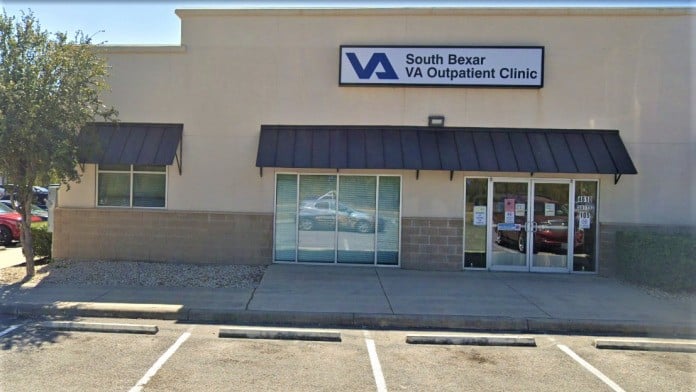
|
San Antonio, TX | New Season’s NW San Antonio Treatment Center is a drug rehab that provides outpatient services to adults in San Antonio, Texas, through several opioid addiction treatment pathways. If you’re looking for help recovering from drug abuse, this center can help through its medically supervised withdrawal, medication assisted treatment, counseling, a | Treatments Programs Payment Options | What a awesome clinic! I moved here from Florida 8 months ago and was so nervous about changing clinics. But this clinic has made the transition so smooth. Everyone from the nurses to the counselors and especially the doctor are beyond nice and welcoming. And you can tell they all care about your sobriety. I'm in and out everytime I come. Have nothing but positive to say about this location.
Jennifer Synder
4 months ago
Great place if your serious about recovery
Kurt Schiget
4 months ago
I just started a couple of months ago and I love it the staff are awesome trying to help you out with work , school or whatever you might need help with and the lines are not long and if so, you don't have to wait in line out side the, no matter the condition of the weather, you don't have to wait outside,
Juanita Macedo
6 months ago
| 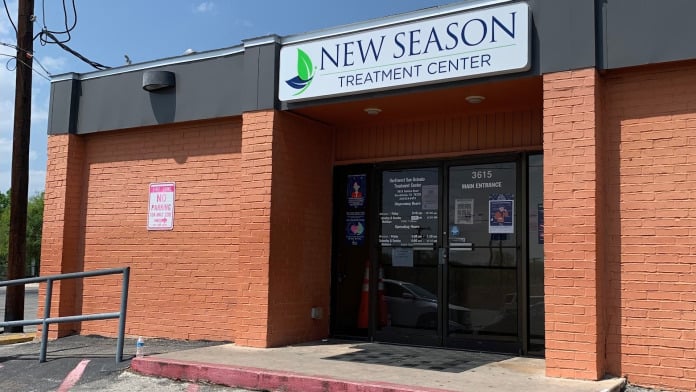
6 6 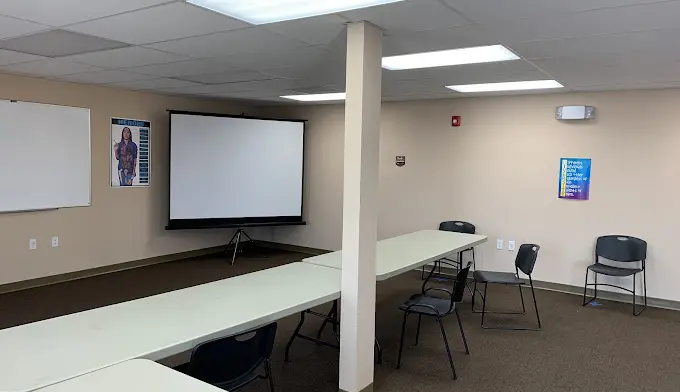
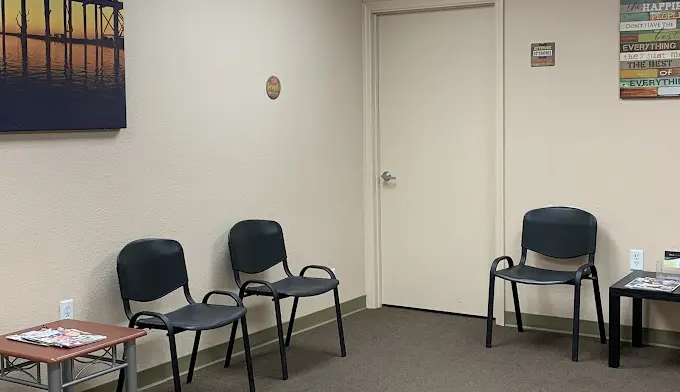
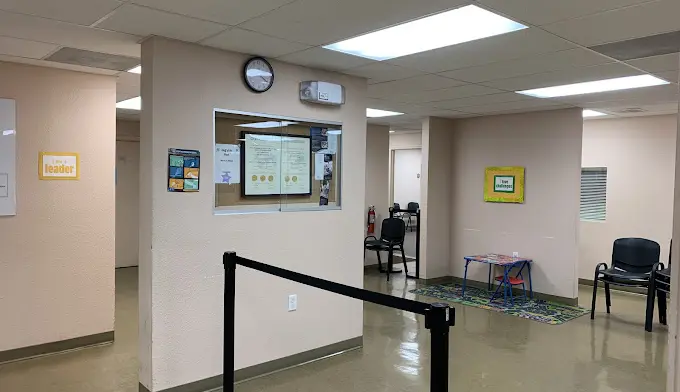
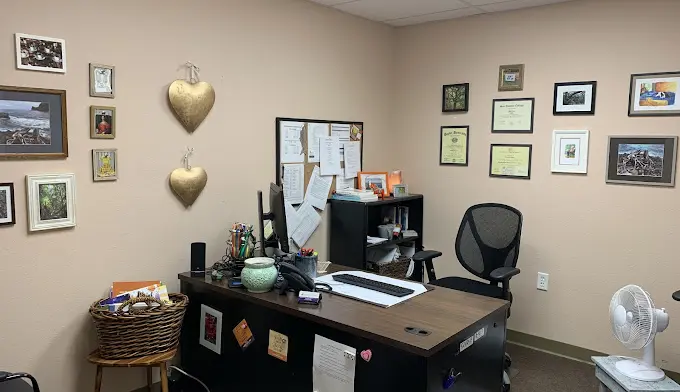
|
San Antonio, TX | River City Rehabilitation Center in San Antonio, Texas, is an outpatient addiction treatment clinic. The center is staffed with multiple healthcare professionals including licensed counselors, physicians, pharmacists and nurses. The primary treatment they provide to patients is medication-assisted treatment (MAT). Here, they use methadone to help | Treatments Programs Payment Options | Thank you Mrs. Sharon and James for giving me a fair chance when no one else in San Antonio would due to my past and rumors and suspicions. I'll always be grateful for the knowledge and experience I gained during my internship.
Michelle Osborne
4 months ago
Great place. If it wasn't for river city I would probably be up to my old ways.
matthew ramos
1 year ago
The staff is very nice,the counselors are very considerate always helpful. I never thought I would feel normal again. Going to this clinic is helping me tremendously. I recommend to everyone that is in their addiction and wants to get help and clean to try this program it works
Omero Herrera
3 years ago
| 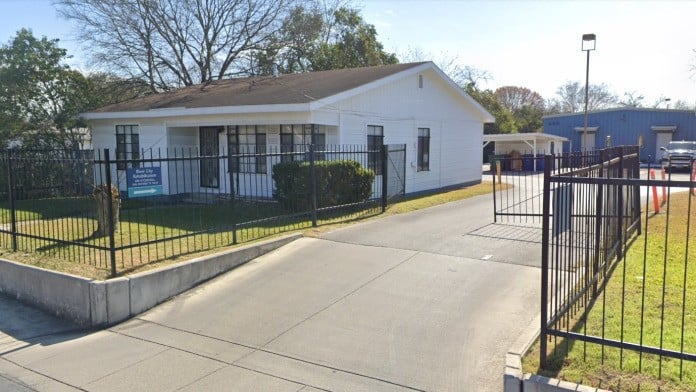
6 6 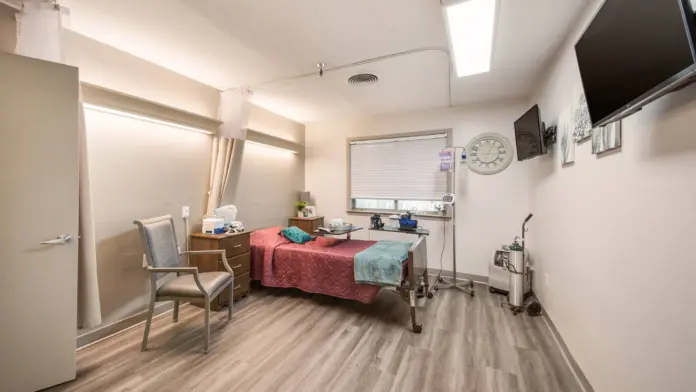
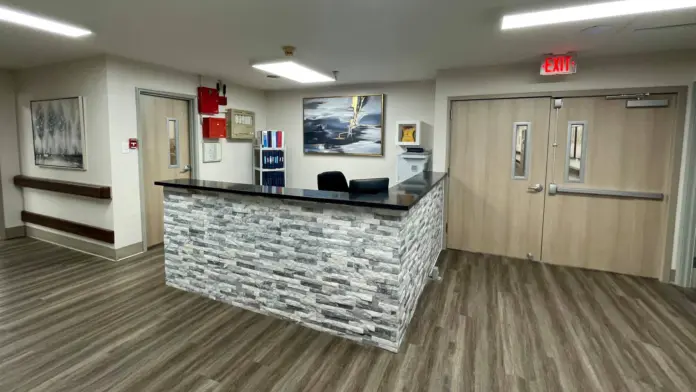
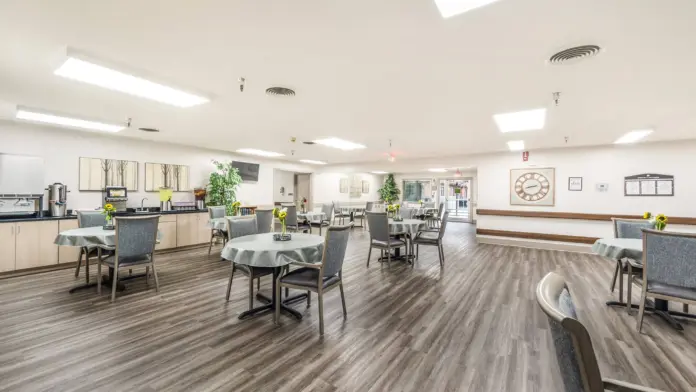
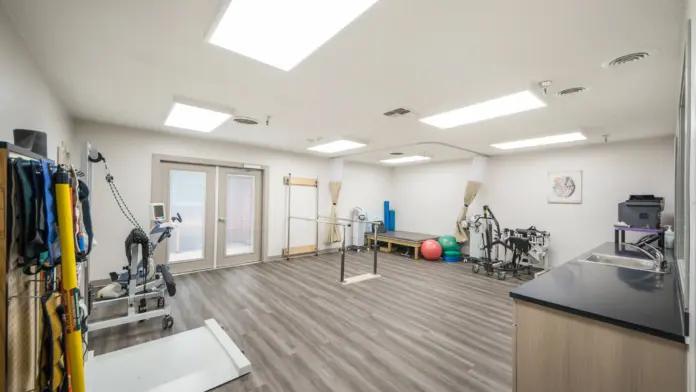
|
San Antonio, TX | The nonprofit Alpha Home is an alcohol and drug rehab program based in San Antonio, Texas. They offer two levels of treatment for adults: residential treatment (for women) and general outpatient program (OP) for men and women. They use a spiritual model based on the 12 Steps. You’ve probably seen the term “whole person approach” | Treatments Programs Payment Options | Would love to have my daughter there
Rosalinda Gonzales
7 months ago
Been sober since 10/5/2018 and it all started with Alpha Home ❤️
Ashley Criado
1 year ago
Love alpha home.Tracy my counselor is an amazing woman. I still use all the skills of sobriety she taught me on a day to day basis. living is loving.
Ruby Amador
2 years ago
| |
San Antonio, TX | South Texas Veterans Health Care System - Villa Serena center is in San Antonio, Texas. They provide behavioral health care for veterans and their families who are struggling with addiction and dual diagnosis conditions. Villa Serena provides medication assisted treatment, inpatient, and outpatient treatment. Inpatient treatment consists of short a | Treatments Programs Payment Options | I just want to thank all of the Villa Serena staff. They truly do care about our sobriety and go above and beyond to ensure of that. I finished my program today, got my certificate, came home and already miss everyone. I will continue to pray for our sobriety and i will take it one day at a time. If you are ready to surrender your addiction come to Villa Serena and you will come out with a support group of people who care. -Vic
Vic
8 months ago
If you're looking for a place to get clean and you're a vet, you can't ask for a better place to do so. Stellar medical attention, a staff who really cares for your welfare, and excellent living conditions. You're connected to resources in the community who will help with jobs, housing etc. It's a peaceful, safe place. Just follow the rules and you won't have any problems from the staff.
Mike Burk
2 years ago
This place has the usual issues, remember when you're coming here, this is the government nothing actually works correctly or the way it should half the time. Try not to focus on that let it go worry about your purpose here. I'd say a small amount of staff you might have conflict with but 99% go out of there way to help you. Covid coming back is making it very challenging to stay focused on what you need to and not on the stuff you can't control. Remember have an open mind take what is good for you and leave the rest but remember they've been doing this some of them a long time make sure you listen with an open mind and especially the people who have been addicts they have good advice.
A Google User
3 years ago
| 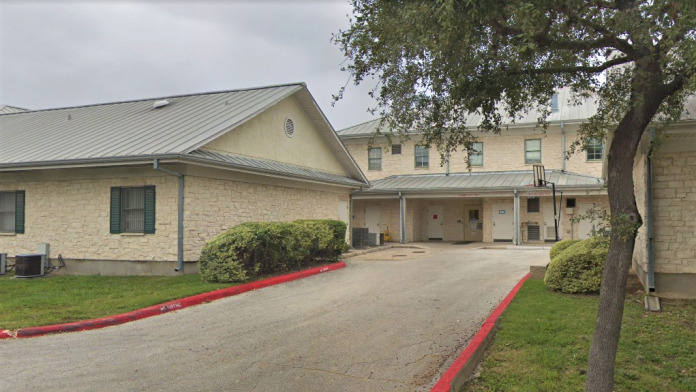
|
San Antonio, TX | Alpha Home has an outpatient clinic in San Antonio, Texas. It’s a nonprofit drug and alcohol addiction treatment program. Men and women can participate in their general outpatient program (OP). Alpha Home is a spiritually based program rooted in the whole person treatment through the 12 Step model. Not everyone needs the high level of care of an | Treatments Programs Payment Options | Would love to have my daughter there
Rosalinda Gonzales
7 months ago
Been sober since 10/5/2018 and it all started with Alpha Home ❤️
Ashley Criado
1 year ago
Love alpha home.Tracy my counselor is an amazing woman. I still use all the skills of sobriety she taught me on a day to day basis. living is loving.
Ruby Amador
2 years ago
| 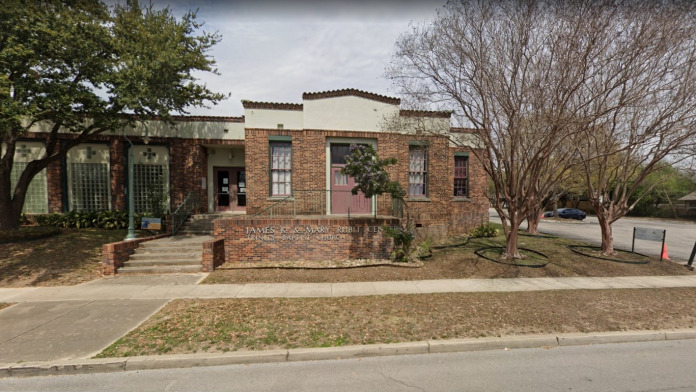
|
San Antonio, TX | Blue Heron Recovery is a rehab facility that specializes in helping people who are dealing with addiction through their outpatient programs. They can be found in San Antonio, Texas. You’ll have the flexibility to attend your daily life while you go through treatment. They view addiction as a family disease and that means that your loved ones will | Treatments Payment Options | Amaizing place that my husband is going...Thanks to all the team , but incredible work ,guidance and feedback with his heart to Kile...all my appreciation to this place
Jacqueline Pablos
2 months ago
All of the staff members were amazing!
Jaclyn Sabatino
2 months ago
Very special place, saved my life. I owe Blue Heron everything, thank you to all the wonderful people that helped me through this very challenging time in my life.
Kaleb Sauter
3 months ago
| |
San Antonio, TX | Community Medical Services, located in San Antonio, Texas is a private alcohol and drug rehab that offers treatment for a variety of substance abuse addictions. They offer supervised medical treatment to safely manage withdrawal symptoms during detoxification, residential care providing long term support for addiction recovery, as well as flexible | Treatments Programs Payment Options | The dosing nurse, is wonderful. And the staff is helpful and great. I'm lucky to have found such a great place
Darryl Franka
3 months ago
My name is DANTE BARRON I HAVE BEEN IN TREATMENT FOR ABOUT 22YRS THIS IS THE BEST OF THE BEST CLINIC THEY TREAT US LIKE HUMAN BEINGS WITH ALOT ALOT OF RESPECT,KIND,CARING MRS ESPERLASA MY CONSELER SORRY FOR THE MISS SPELL BUT I FEEL SO SO CLOSE TO HER ONE OF MY GRANDDAUGHTER WAS MURDERED ABOUT LAST YEAR N IF IT WASN'T FOR HER NO TELLING WHAT WOULD HAVE HAPPENED WE BOTH CRY N CRY N CRY N I WILL NEVER NEVER FORGET HOW NICE KIND IT WAS SO SO SO HARD 4 ME I STILL CAN'T GET OVER IT N I WILL NEVER WILL I DONT LISTEN 2 MUSIC ANY MORE SO SO SO BUT GOD HAS BLESS ME WITH MRS ESPELASA MY CONSELER MAY GOD BLESS HER N ALL HER FAMILY CHECK THIS CLINIC OUT I KNOW U WILL LIKE IT ITS A BLESSING HAVING THIS CLINIC ALL ALL THE CONSELERS DR NURSES
Dante Barron
4 months ago
The most nicest staff hardly ever no line. Awesome clinic
Santa Cervantez
5 months ago
|

San Antonio is the 116th most expensive city nationwide for addiction treatment affordability, with an average cost of addiction treatment of $57987. This is comparable to the average cost of $56623 for addiction treatment in Texas and comparable to the national average cost for drug rehab of $57,193.
The costs of drug and alcohol rehab in San Antonio vary widely and depend on several factors, including:
The costs of addiction treatment listed for cities and states are averages based on the cost of medical detox, inpatient rehab, outpatient rehab, and medication assisted treatment. These averages are high due to the cost of medical detoxification and residential inpatient rehab programs.
These numbers also reflect the raw cost of drug rehab, before any insurance coverage. The typical individual seeking addiction treatment can expect to pay much less for outpatient or intensive outpatient services than the averages listed below.There are many ways to pay for drug rehab in San Antonio. Most rehab treatment centers accept cash or self-payment, as well as private health insurance. However, there are many treatment centers in San Antonio that accept Medicaid and Medicare, or offer sliding scale payments or other low-cost payment options. Here's the complete breakdown of how to pay for addiction treatment near San Antonio.
Aetna is the most widely-accepted insurance for drug rehabs in San Antonio, with 16 treatment centers in the city accepting their insurance. Blue Cross Blue Shield is the 2nd most popular with 16 treatment centers accepting it followed by Cigna in 3rd accepted by 14 drug rehabs.
San Antonio has the 328th highest rate of drug use nationwide among nearly 400 cities surveyed. This number reflects the combined use of cocaine, heroin, meth, and marijuana, displayed individually below. The percent shown for each drug represents the number of residents in Bexar county that have reported ever using the following drugs, so these numbers should not be interpreted as direct evidence of current drug use in San Antonio or Bexar county as a whole.
In 2023, San Antonio had the 3rd highest number narcotics violations out of 330 cities nationwide, with a total of 7694 reported drug-related incidents that year. This includes cases of public intoxication, drug arrests, narcotics found during house calls and traffic stops, and any other drug-related crime.
Keep in mind these numbers are dependent on accurate record keeping and reporting laws by local police and sheriffs, and may not fully reflect all drug related crime in San Antonio.All values are per 100,000 population.
Source: https://cde.ucr.cjis.gov/LATEST/webapp/#/pages/explorer/crime/crime-trend